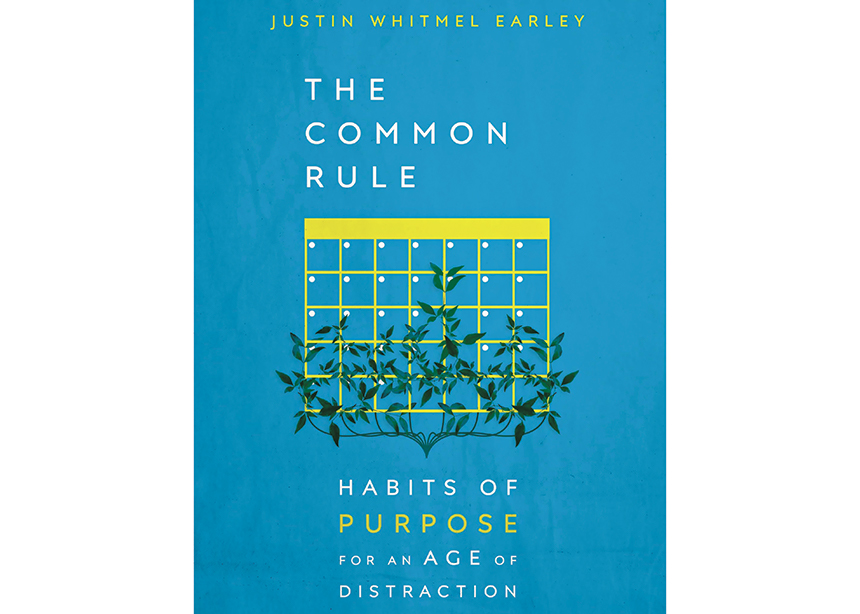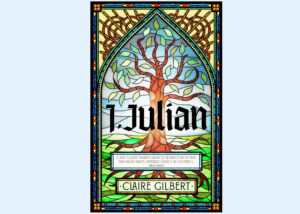What was your response the last time a good friend asked you how you were doing? If you said with a laugh or a moan, “Too busy,” or just offered an eye roll, this book might be for you.
In The Common Rule: Habits of Purpose for an Age of Distraction, author Justin Whitmel Earley uses a memoir style of writing as he sets out to tame the beast of overwork and overdoing anything. He is a mergers and acquisitions lawyer in Richmond, Va., and earlier was a missionary in China. He and his wife have four sons, all of which means that he has learned the hard way about anxiety and overdoing.
The book is directed to Christians who feel addicted to work or who find themselves putting job before family, God or self. It can help all who desire to nudge work and responsibilities into their proper place: handling them as both necessity and joy.
Earley created a program he calls The Common Rule, which helps individuals not to succumb to time sucks, such as scrolling the smart phone, burrowing in a newspaper, glazing before the TV or teeing off too many rounds of golf. His step-by-step instructions help us bask both in God’s love, and work at sharing God’s bounty and mercy with friends, family and neighbours. He covers a lot.
The Common Rule includes a total of eight habits—divided into daily and weekly habits. Daily habits include: kneel for prayer several times a day (wow!); have at least one meal with others; turn off the phone for an hour; and read Scripture in the morning before you turn on your phone. The weekly habits include: one hour of conversation with a friend; no more than four hours of leisure media use; fasting from something for 24 hours; and observing sabbath rest. The material on managing the distractions of modern media—smart phones, computers, email—is worth the price of the book, with practical suggestions to try, and leeway to come up with guidelines that work for you.
I love that Earley started his exploration of realigning one’s life and priorities by reminding us that God, as creator and sustainer, worked hard and long! “Go back to the opening act of the Bible. The spotlight has just come on, and we find the Trinity on the stage working together to create this beautiful and bizarre material world. God is different parts blue-collar worker, artist, inventor, tinkerer, gardener and entrepreneur,” he writes, reminding us that God did manual labour.
As the wife of a retired blue-collar worker, I appreciated this shout-out. I also resonated deeply with his chapter on how to keep family mealtime.
But kneeling down in your work day? I was fortunate for most of my employed life to enjoy a private office with a door. I could easily do what Earley recommends—stop mid-morning or afternoon and kneel down, or stretch out to pray or get in touch with the Holy. If your work setting doesn’t allow that, or you are constantly in the public eye, Earley suggests that just a few moments of holding out your hands on your lap, in a holy gesture of receiving a gift, can also be a way to slow down and refocus.
The book includes a 30-page resource section.
Melodie Davis of Linville, Va., recently retired from MennoMedia/Herald Press, where she worked as an editor and writer. She is the author of nine books, most recently Whatever Happened to Dinner? Recipes and Reflections for Family Mealtime. You can read her blog at findingharmonyblog.com. This review was originally published in the September issue of The Marketplace magazine (bit.ly/2IuNMfJ).
Further reading from our Fall 2019 Focus on Books & Resources:
The world in colour
Journal connects Korean Anabaptists around the globe
Book explores healthy masculinity
‘I realized I had been duped!’
CommonRead connecting churches from coast to coast
Part memoir, part devotional reading
2019 List of Books & Resources








Leave a Reply
You must be logged in to post a comment.